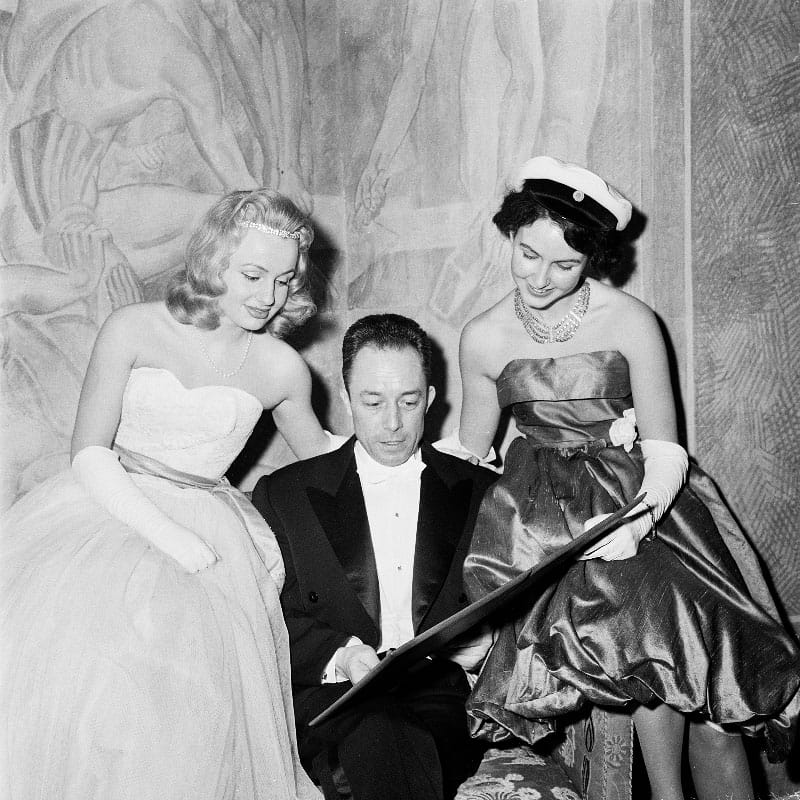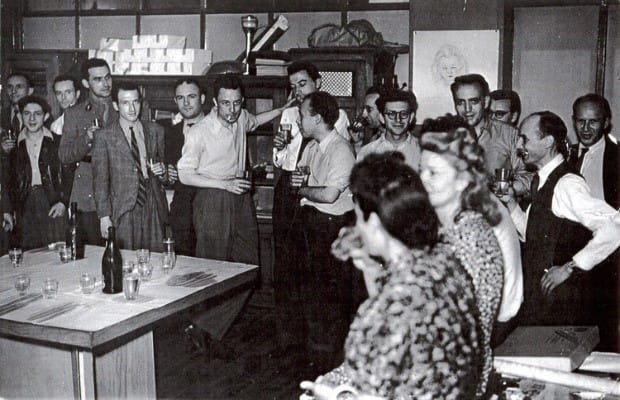The Courage of Limits: Albert Camus and the Art of Moderate Revolt

◳ In an age of extremes, Camus’s philosophy of revolt with restraint challenges both nihilism and authoritarianism, reminding us that true rebellion affirms dignity without abandoning conscience.
We live in an age where moderation is mocked. Every debate is framed as an existential showdown, every election as a battle between good and evil. To compromise is to betray. To appeal to limits or complexity is to expose oneself to ridicule. In such an atmosphere, moderation appears cowardly, a refusal to “choose sides.”
Yet Albert Camus, writing in the aftermath of world war and genocide, offered a different vision. For him, moderation was not weakness but rebellion—the hardest, most courageous stance when the world demanded purity and absolutes. In L’Homme révolté (The Rebel, 1951), he argued that revolt is born of dignity, but it must remain bounded. If it abandons limits, it becomes indistinguishable from tyranny.
“I rebel—therefore we exist.” —Camus, The Rebel
This insistence—that revolt must affirm solidarity, not annihilation—was Camus’s antidote to both nihilism and authoritarianism. And it is an antidote we badly need today.
Although Camus described himself as “not an atheist and not a believer,” his vision of revolt with restraint resonated powerfully with leading Catholic philosophers. Jacques Maritain, architect of Integral Humanism and key influence behind the Universal Declaration of Human Rights, saw in Camus a moral clarity forged in resistance to both totalitarianism and despair—even if Camus lacked faith. Maritain described him as “a soul of the highest nobility, who, without knowing it, prepared the ways of grace.” Meanwhile, Étienne Gilson, a Thomist scholar, appreciated Camus’s insistence that “man is not God” as a secular echo of human finitude more typically rooted in Catholic thought. These affinities suggest that Camus’s secular rebellion was not a rejection of the religious moral imagination but achieved a kind of implicit convergence with traditions suspicious of totalizing ideologies.
Camus’s life prepared him for the solitude of moderation. Born in Algeria in 1913 to a poor pied-noir family, he grew up between two worlds: the French colonial society of Algiers and the lives of the colonized Arabs. His experience of being both insider and outsider sharpened his suspicion of absolute claims to belonging or power.
During World War II, Camus became editor of Combat, the Resistance newspaper in occupied France. He gave voice to a Europe fighting fascism without succumbing to fascism’s own cult of violence. In those pages, he called for a struggle that defended dignity without embracing cruelty.

After the war, he paid the price for his refusal of extremes. He denounced Stalinism when many French intellectuals hailed the Soviet Union as history’s vanguard. He condemned French repression in Algeria but refused to endorse revolutionary terror. The result was isolation: attacked from left and right, admired by few, and understood by almost none.
“The only way to deal with an unfree world is to become so absolutely free that your very existence is an act of rebellion.” —Camus (Notebooks, 1942)
Camus’s moderation was not comfort but solitude. It cost him friendships, reputation, and influence. That is precisely what made it courageous.
The Rebel: Revolt With Limits
The Rebel begins not with ideology but with experience: the moment when a human being says “no” to humiliation. That refusal creates revolt.
“What is a rebel? A man who says no. But if he refuses, he does not renounce. He is also a man who says yes, from the moment he makes his first gesture of rebellion.” —Camus, The Rebel
For Camus, rebellion is inseparable from limits. To revolt is to assert dignity, but if that revolt denies the dignity of others, it destroys itself. Nihilism, the denial of meaning, insists that “everything is permitted.” Revolutionary utopianism, the certainty that history has a preordained goal, allows “every crime in the name of redemption.” Both end in camps and firing squads.
Against these temptations, Camus insisted on the paradox of limits:
“Absolute freedom mocks at justice. Absolute justice denies freedom. To be fruitful, the two ideas must find their limits in each other.” —Camus, The Rebel
The rebel’s task is to preserve this tension—to act without becoming an executioner, to resist without becoming an oppressor.
It is tempting to romanticize moderation as a golden mean. But Camus’s example shows it is only courageous when it exacts a price. His refusal to glorify Stalinism cost him his place in Parisian intellectual circles. His opposition to both colonial repression and revolutionary terrorism in Algeria earned him hostility from all sides. He once wrote in anguish:
“I believe in justice, but I will defend my mother before justice.” —Camus, speech in Stockholm, 1957
This remark, often criticized as evasive, was not cowardice but the brutal honesty of a man torn between competing absolutes. Camus refused to sacrifice human beings—his neighbors, his family—on the altar of ideology. That fidelity to the concrete over the abstract, to the human over the historical, is what defined his moderation.
Camus’s message could not be timelier. Our own political world is once again a theater of extremes, amid culture wars and cynical nihilism. Moderation today is not passivity but defiance. It resists the intoxication of total certainty. It insists on institutions as scaffolding for common life, even when they frustrate. It honors dialogue, compromise, and pluralism, even when they feel inadequate. In a world addicted to extremes, moderation is rebellion.
For Camus, art itself was the highest expression of revolt tempered by moderation. Unlike ideology, which demands purity, art works within limits—form, style, medium—and yet creates beauty out of constraint. In The Rebel he writes: “If the world were clear, art would not exist. Art helps us live with the half-light of truth.” Artistic creation, in this sense, mirrors ethical rebellion: it refuses nihilism by affirming meaning, but resists dogmatism by embracing ambiguity. Camus saw the artist as the model of the true rebel—one who defies despair not with absolute answers, but with images and stories that hold human dignity together in the midst of fracture.
Camus was no optimist. He refused to believe in history’s inevitable march toward progress, yet he equally refused despair. His “yes” within revolt was a faith in solidarity:
“Every act of rebellion expresses a nostalgia for innocence and an appeal to the essence of being.” —Camus, The Rebel
This was not utopia but humanism. Revolt, tempered by limits, affirms community rather than domination. It binds us together in dignity rather than dividing us into executioners and victims.
Moderation as Rebellion
In our own extreme times—when purity is celebrated and compromise scorned—Camus reminds us that moderation is not weakness but courage. It is rebellion against the cult of extremes. To say “no” to oppression without saying “yes” to annihilation, to defend freedom without denying justice, to resist violence without sanctifying new violence—this is the courage of moderation.
The rebel’s task is not to conquer history but to keep alive the fragile flame of human dignity within it.
Camus never offered a program. What he offered was a posture: fidelity to freedom, refusal of lies, acceptance of limits. The rebel’s task is not to conquer history but to keep alive the fragile flame of human dignity within it. That, in our age of extremes, may be the most radical act of all.
Postscriptum — Camus in His Own Words
“Absolute freedom mocks at justice. Absolute justice denies freedom. To be fruitful, the two ideas must find their limits in each other. Every rebellion that becomes absolute and unlimited leads, in its turn, to negation. The revolutionary spirit, when it refuses moderation, condemns itself to becoming the prisoner of the very violence it claims to abolish. To say yes to one’s freedom is also to say yes to the freedom of others. If it does not, rebellion loses the substance of its revolt, which was born in common dignity. In the end, it becomes nothing but an alibi for domination. The true rebel, therefore, is he who, while resisting oppression, accepts the limits that prevent him from becoming an oppressor in turn.” —Albert Camus, The Rebel (1951)





